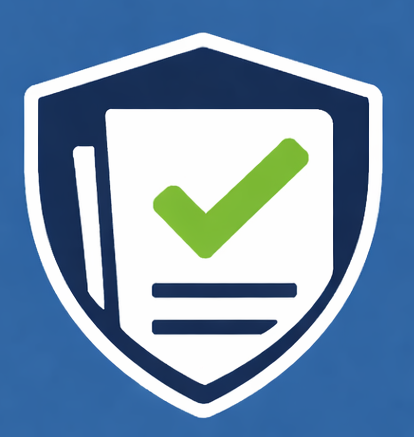CISA (Certified Information Systems Auditor) Certification Guide
CISA Certification Guide
The Certified Information Systems Auditor (CISA), offered by ISACA, is one of the most recognized certifications in IT auditing, governance, and information security. It validates your ability to assess vulnerabilities, design controls, and ensure compliance — making it highly valued by enterprises, financial institutions, and government organizations worldwide.
Why CISA Is Important
- Globally recognized credential for IT auditors, compliance, and governance professionals.
- Required or preferred by Big 4 consulting firms, banks, and government agencies.
- Certified professionals earn $110K–$130K+ on average in the U.S.
- Meets many regulatory and compliance requirements (e.g., SOX, GDPR, HIPAA).
Requirements and Eligibility
- To become fully certified, you must:
- Pass the CISA exam.
- Have 5 years of professional experience in IS audit, control, assurance, or security.
- Up to 3 years of experience can be substituted with:
- 1 year of auditing experience = 1 year waived.
- 60–120 university credits = up to 2 years waived.
- No prerequisites are required to sit for the exam.
Exam Details
- Exam Fee: $575 (ISACA members), $760 (non-members)
- Format: 150 multiple-choice questions
- Time: 4 hours
- Passing Score: 450 out of 800 (scaled score)
- Domains Covered (2025 outline):
- Information System Auditing Process (21%)
- Governance and Management of IT (17%)
- Information Systems Acquisition, Development, and Implementation (12%)
- Information Systems Operations and Business Resilience (23%)
- Protection of Information Assets (27%)
Salary and Career Outlook
- Average salary: $110K–$130K in the U.S.
- Roles: IT Auditor, IT Risk Consultant, Compliance Analyst, Information Security Auditor, Internal Auditor.
- High demand: CISA is one of the most requested certifications in audit job postings globally.
Step-by-Step Roadmap to CISA
- Decide on Timing – Plan when you’ll take the exam (offered year-round).
- Register for the Exam – Sign up via ISACA and schedule with PSI test centers.
- Choose Study Resources – Use ISACA’s official review manual, plus practice questions.
- Create a Study Plan – Allocate 2–4 months of prep, focusing on high-weighted domains.
- Take Practice Exams – Test your knowledge under timed conditions.
- Sit for the Exam – 150 questions in 4 hours.
- Gain Experience – Fulfill 5 years of professional IS audit experience (with waivers if eligible).
- Apply for Certification – Submit experience verification to ISACA.
Exam Pass Tips and Mistakes to Avoid
Tips for Success
- Memorize the CISA review manual concepts — questions are directly tied to ISACA’s framework.
- Focus heavily on domain 5 (Protection of Information Assets) since it’s 27% of the exam.
- Practice interpreting situational questions from an auditor’s perspective.
Common Mistakes
- Studying only technical content — the exam is audit- and governance-heavy.
- Ignoring time management — 150 questions in 4 hours can be tight.
- Overlooking the importance of real-world audit experience.
Best Study Resources
- ISACA CISA Review Manual (latest edition)
- ISACA CISA Practice Questions Database
- CISA Review Courses (InfoSec Institute, Udemy, LinkedIn Learning)
- Study groups and CISA forums
Renewal and Continuing Education Requirements
- Valid for 3 years.
- Must earn 120 Continuing Professional Education (CPE) credits over 3 years (minimum 20 per year).
- Annual maintenance fee: $45 (members), $85 (non-members).
- CPEs can be earned through ISACA events, webinars, training, or publishing.
CISA vs Other Certifications
| Certification | Focus | Difficulty | Cost | Avg Salary | Best For |
|---|---|---|---|---|---|
| CISA | IS audit, IT governance, risk, compliance | Medium | $575–$760 | $120K | Auditors, IT risk, compliance pros |
| CISSP | Broad technical + managerial cybersecurity | High | $749 | $140K | Security leaders, architects |
| CISM | Information security management & governance | Medium | $760 | $130K | Security managers |
| CPA | Financial & accounting audits | High | Varies | $120K | Financial auditors, accountants |
👉 CISA is best for IT audit and governance, while CISSP focuses on security leadership, CISM on management, and CPA on financial audits.
Practice Questions (Mini Quiz)
- Which CISA domain covers reviewing disaster recovery and business continuity plans?
- A) Governance and Management of IT
- B) Information Systems Operations and Business Resilience ✅
- C) Information System Auditing Process
- D) Protection of Information Assets
- What is the passing score for the CISA exam?
- A) 400
- B) 450 ✅
- C) 500
- D) 600
- How often must a CISA renew their certification?
- A) Every 2 years
- B) Every 3 years ✅
- C) Every 4 years
- D) Every 5 years
CISA Certification
The CISA certification is one of the most valuable credentials for IT auditors, risk consultants, and governance professionals. It demonstrates mastery of auditing processes, IT controls, and security frameworks, making you highly attractive to employers in finance, consulting, and government.
If you want to advance in audit, compliance, or IT risk management, CISA is an excellent investment. With structured preparation and experience, it can significantly boost your career and earning potential.






